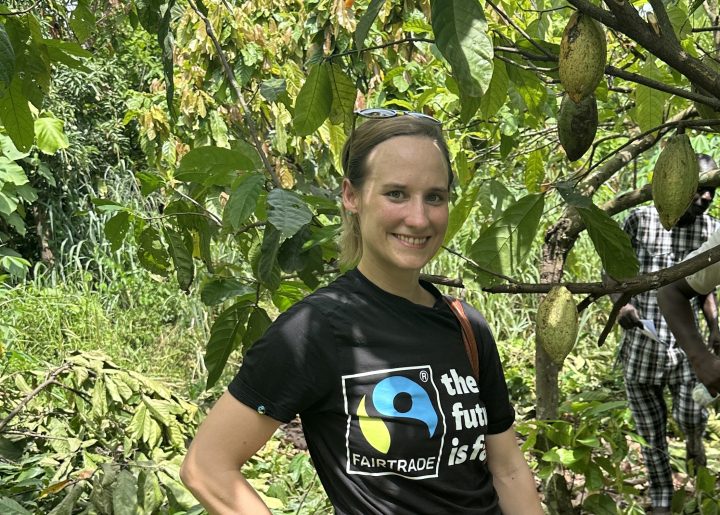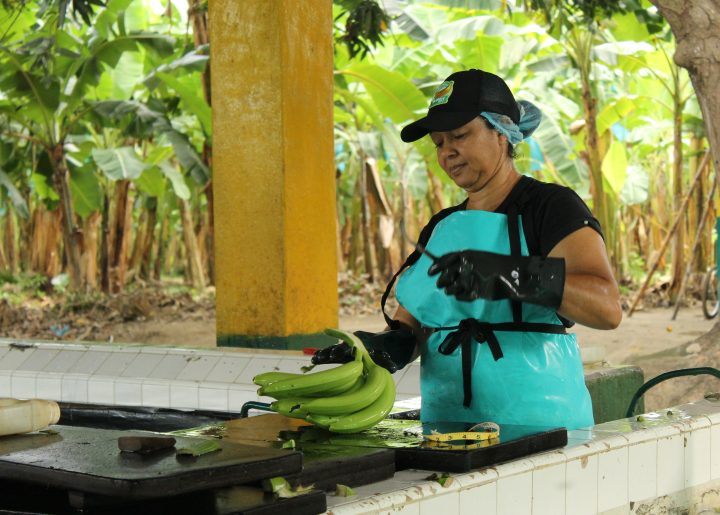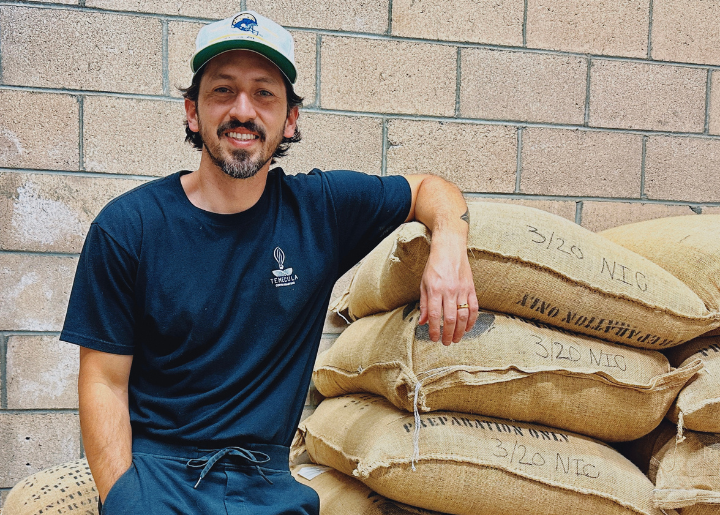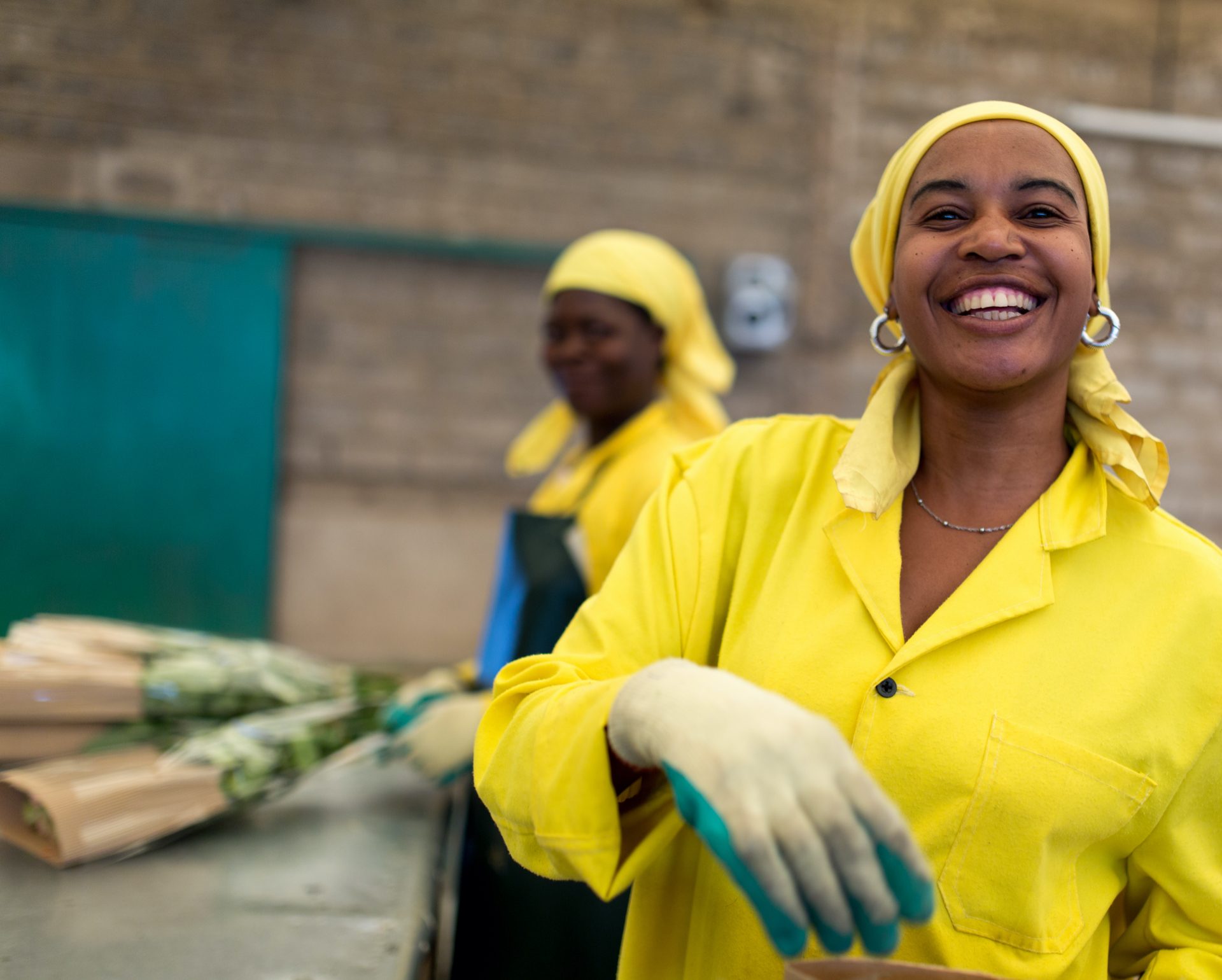Don’t even THINK of parking here
Over the past few days, a Fairtrade team has been at the United Nations in New York, attending discussions on the adoption of the new global goals framework, the Sustainable Development Goals (SDGs). Tim Aldred, Fairtrade Foundation UK’s Head of Policy & Research, gives us the low down…
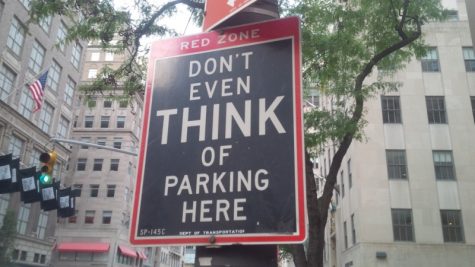 Here in New York the road signs are remarkably frank. An excellent specimen that caught my eye this weekend as I headed between the skyscrapers to pick up a pass from the UN office, read: “Don’t even THINK of parking here!”
Here in New York the road signs are remarkably frank. An excellent specimen that caught my eye this weekend as I headed between the skyscrapers to pick up a pass from the UN office, read: “Don’t even THINK of parking here!”
It almost shouts in your face.
It’s also a great message for the assorted Heads of Government who have turned out in numbers to endorse the new global goals, and to start the process of putting them into practice. UK Prime Minister David Cameron was among those in attendance to sign on the dotted line (at one point I turned around in a corridor to find him right behind me with his entourage, but was too gobsmacked to say anything – known as a #lobbyingfail in Twitterspeak).
President Barack Obama called for “inclusive growth that benefits the many, not just the few.”
US President Barack Obama called for “inclusive growth that benefits the many, not just the few”, and of course Pope Francis, arriving in a Fiat 500, called for environmental rights to be raised to the level of human rights.
There has, rightly, been celebration at what is an ambitious set of goals, universally agreed by all 193 UN member states. The goals require governments to “leave no-one behind” – to reach the remaining 800 million people in the world without enough food, the hundreds of millions without peace, security and human rights, the billions without decent work and all of us facing environmental catastrophe if we fail to tackle climate change.
What happens when push comes to shove?
But, for many of the observers from civil society, including ourselves in the Fairtrade team, this has been tempered by worries that when it comes to the difficult crunch stuff, the governments who have queued to sign up to the goals this week could easily fail to deliver.
Take climate change: ahead of the Copenhagen climate change conference in 2010 there could not have been more pressure on world governments to agree an ambitious, binding deal, and yet the outcome was insipid and toothless in the face of rising carbon emissions. When it came to it, the short term cost was too high for the politicians to agree, despite the science and the public pressure.
Similarly with trade, the Fairtrade Foundation UK’s “Show Your Hand” campaign puts the spotlight on cases where the UK’s trade policy is actively undermining the prospects for development, rather than, as advertised, opening them up.
The SDGs are very ambitious. They need to be.
They pledge to end hunger, poverty and environmental damage, to tackle human rights abuses and improve peace and justice.
But they are not legally binding: there’s a strong incentive to act, but no compulsion. As Amina Mohammed, the UN Secretary General’s Special Adviser on the SDGs put it to Civil Society Organizations on Sunday, just ahead of Barack Obama’s keynote address, “accountability is the untied knot”. In other words, what is the comeback for those that fail to pull their weight?
Putting your money where your mouth is
And then there is paying for the goals. Aid flows are measured in hundreds of millions of pounds annually, but the invoice for delivering the new goals looks more like $3 trillion per annum. It is a massive challenge and is one of the big reasons why governments have been courting the private sector. Private sector finance and trade are being looked to as the source of much-needed cash to move things forward.
In principle, this isn’t a bad thing. Some of the top things that Fairtrade farmers want are access to markets, and decent prices – if we can make just some of the world’s trade and finance work harder for poor people, then it will be transformative. We urgently need progressive companies that are prepared to go further for the farmers and workers in their supply chain, that are willing to invest in addressing the human rights issues affecting all workers, but women, children and migrant workers in particular, that are prepared to invest in the environmental challenges – and, underpinning all this, prepared to pay a fair, sustainable price for the things they buy.
But there’s a need for healthy caution.
As I heard ministers and development officials seeking to make the case for such investment to skeptical financiers in several sessions over the course of the summit, the language turned to describing the SDGs as an investment opportunity; the discussion became focused on “barriers to investment” and how donor funding could oil the wheels. Don’t get me wrong, there’s a need to speak the language of business to get the message on poverty reduction across. But at times I felt that some platform speakers didn’t actually get that this is about poor people and their rights to development.
Getting business on board to tackle climate change
By contrast, it was heartening when a panel of CEOs stepped up to discuss climate change. One of them spoke from the heart about the impact of climate change on their children. Another about the need for business to challenge governments to go further. You could tell it mattered personally, to them. You could tell that they felt a moral compulsion to act (let’s hope they tell those in the corporate world who are lobbying hard against climate change legislation).
That’s where we need to get the SDG skeptics in the business community on poverty and human rights. Yes, a sensible business case is necessary (and not that hard to describe). Equally, as the UK Department for International Development (DFID) Secretary of State told UK NGOs, “help us to show what good looks like”. But we need to remain clear that dealing with the injustice that is experienced by billions of people matters to all of us – and that in the supply chains that deliver food and other products to our shops, there is a duty of development and rights to those who right now don’t get a fair deal.
So thank goodness for the civil society representatives. In a series of powerful interventions across the different formal sessions and side events, many spoke from their personal experience of injustice and underdevelopment they kept the attention of delegates on what really mattered.
A civil society organization (CSO) delegate from the South Island States, asked why the global response to migration was so weak, when the causes were livelihoods destroyed by climate change and supply chains with prices too low to deliver more than poverty wages.
Saferworld challenged the point of a peace and justice goal when arms are being sold “hand over fist”, and when defense spending is thirteen times higher than development spending.
Caritas Ghana asked how governments would ensure that business partnerships would deliver development, not just investment.
A Nigerian CSO delegate said that governments had given the world’s people a promissory note, and that it must be paid.
And Nobel Peace Prize winner Kailash Satyarthi called on business to address child rights and child labor in supply chains.
So the hard work really starts now. Governments, businesses, and, yes, civil society too, need to set transparent timetables for action and be held to account for delivery.
The proverbial proof of the pudding is, of course in the eating! We want to get stuck in and put the weight of Fairtrade’s farmers and workers behind implementing the goals. As a first step, Fairtrade International will, therefore, be launching a report about the relevance of Fairtrade and opportunities for with governments to partner with us in the achievement of the new Global Goals. The launch will coincide with “Fairtrade Day” at the Milan World Expo on 14 October this year.
However, it won’t just be the development ministries that need to take it on. Kajsa Olofsgard, the Swedish Ambassador for Post 2015, told a side event that “Policy coherence for sustainable development is the main tool”. That’s quite a mouthful, but it means something simple. Whatever you do as a government, whether in trade, finance, agriculture, health or elsewhere, think hard about the effect it will have on the poorest. And then act in a way that puts them first.
So don’t even THINK about parking your diplomatic limousine here. Yes, it’s been a good summit, but it’s time to move on.
We’re in this together
Fairtrade America partners with brands on the journey to certification and beyond. We can help with everything from finding a certified supply chain to marketing your newly certified product.
Get in Touch
